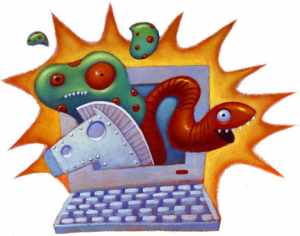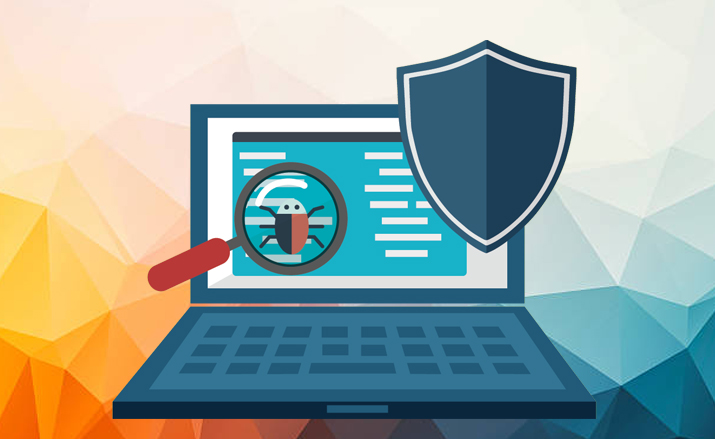
Developers of anti-virus software are warning their users of a potential malware that exploits a loop-hole in Windows auto run.
Most at risk are users with older PCs, Windows 7 and 8 PCs are unlikely to be the infected as they are not engineered to commence autorun.inf files.
Reacting to the news, Microsoft was swift to launch patches for older PCs which are most likely to be infected. According to Microsoft, the virus is likely to spread through systems that didn’t install these patches. Other various mediums that can spread this virus are social media sites and sharing of files and folders.Sophos, McAfee, and Symantec are actively monitoring the spread of this virus. Security experts are appalled at the actions of e-criminals, as to why now they would exploit a four year bug.However, some security experts believe that this is a sign of desperation, there are fewer loopholes to exploit on newer operating systems, and as a result e-criminals are looking at older more vulnerable PC’s running older versions of Windows OS.This virus can spread through a number of mediums, including but not limited to, USB flash drives, and other portable data storage devices used on infected computers. Moreover, the virus is cable of infecting other PCs through an active network connection, which is a concern for most corporations, what’s more is that it’s already spreading fear and anxiety amongst businesses still using older Windows operating systems. Rumors have it that Facebook is also another medium that’s responsible for spreading this virus.
E-terrorists have also invented newer tactics to entice people to download these malware. Naming infected files such ‘porn’, ‘sexy’, or ‘passwords’ tend to entice folks, and they end up downloading this malware. The malware’s primary method of action is that it adds a registry key, springing into action as soon as the PC is booted. Some more sophisticated variants of this malware will also disable Windows update, in essence, preventing Windows from downloading a patch to counteract the virus’s effects.
Once a computer is infected, the malware then contacts a server, which instructs it what to do, and enables the PC to download other malware such as Trojans, Zeus, and supplementary malware capable of stealing e-credentials such as online banking login usernames and passwords.
If your computer happens to be infected with this virus or perhaps you are running windows vista or older, experts recommend you disable auto run manually on all associated programs on windows OS, as well as restrict files sharing. The malware doesn’t have a single name but goes by many names, the following list of names are associated with this type of malware, VOBFUS, Changeup and WORM_ W32/VBNA-X, and W32/Autorun.worm.aaeb. Moreover, experts also urge that in order to stay safe, start by updating your anti-malware software, and in order to protect critical data, employ the use of data security software.
According to Microsoft, the malware is losing its steam; back 2011, infection rates from this malware has declined 59% on PC’s running windows XP, 74% down for visa.
Does Windows Security Catch Malware?

Yes, Windows security does catch malware. Windows Security includes Windows Defender, which is an antivirus and anti-malware program that scans for and removes malicious software from your computer.
Most Common Signs-Computer Compromised By Malware
The most common signs of being hacked may include:
– Unusual activity on your accounts, such as logging in from unfamiliar locations or devices
– Unexpected changes to your computer settings
– Unfamiliar programs running in the background
– Unexpected pop-up windows
– Unusual emails or messages from unknown sources
– Unrecognized files or programs on your computer
– Slow performance or system crashes
– Unusual network activity
Find Hidden Malware In Windows
You can use a variety of tools to scan for and detect hidden malware in Windows, such as Windows Defender, Malwarebytes, and Spybot Search & Destroy. These tools can scan your computer for malicious software and remove any found. Additionally, you can use a tool like Process Explorer to view all running processes on your computer and look for any suspicious activity.
Why Does Malware Keep Popping Up?
Malware can keep popping up for a variety of reasons. It could be due to an outdated version of the operating system, or it could be caused by malicious software that has been installed on your computer. Additionally, it could be due to a vulnerability in a program or browser that is being exploited by malicious actors. In any case, it is important to keep your computer updated with the latest security patches and use an antivirus program to scan for and remove any malicious software.
Force Remove Malware
In order to force remove malware, you must first identify the malicious software that is causing the issue. Once identified, you can use specialized tools such as an anti-malware program to scan your computer and remove the malicious software. Additionally, you can also use a system restore point to undo any changes that were made to your system prior to the infection. Finally, you should consider running a full system scan with an antivirus program to ensure that all malicious software has been removed from your system.
Permanently Remove Malware
The most effective way to permanently remove malware is to use specialized anti-malware software. This type of software will scan your computer for malicious software and remove it from your system.
Can Windows Defender Detect Trojans?
Yes, Windows Defender can detect trojans. Windows Defender is a built-in anti-malware program that is included in Windows 10. It can detect and remove trojans, as well as other types of malicious software.
How Can I Tell If There Is Spy Software On My Computer?
There are several ways to tell if there is spy software on your computer. The most common way is to look for suspicious activity or programs running in the background. You can also check your system logs and firewall settings for any suspicious connections or applications.
Effectiveness Of Windows Malicious Software Removal Tool
The Windows Malicious Software Removal Tool is very effective in detecting and removing malicious software from your computer. It is regularly updated with the latest malware definitions, so it can detect the latest threats. However, it is not a substitute for using a comprehensive security solution.
Stop Windows 10 Malware From Popping Up
To stop Windows 10 malware from popping up, you should install a reliable antivirus program and keep it up to date. Additionally, you should be mindful of any suspicious emails, websites, and downloads. Finally, you should configure your firewall to block any suspicious incoming connections.
Does Windows Malicious Software Removal Tool Run Automatically?
No, the Windows Malicious Software Removal Tool does not run automatically. You must manually download and install the tool, and then run it periodically to scan your system for any malicious software.
How Long Can Malware Go Undetected?
The length of time that malware can go undetected can vary widely, depending on the type of malware and the security measures in place. Some types of malware can remain undetected for months or even years, while other types of malware can be detected within days or even hours.
Where Does Malware Usually Hide?
Malware usually hides in areas of the system that are not easily accessible, such as in the system registry, in system files, in program files, and in the hidden files and folders of the system. It can also hide in the temporary files and folders of the system, or in the browser cache.
Greatest Risk From Malware
The greatest risk from malware comes from downloading and installing malicious software from untrusted sources, clicking on malicious links, and opening suspicious email attachments. Additionally, not keeping your computer’s operating system and other software up to date can put you at risk.
Can Windows Defender Find All Viruses?
No, Windows Defender is not able to detect all viruses. It is not a full-fledged antivirus solution and is only able to detect a limited number of known threats. It is best to use a third-party antivirus solution to ensure that all viruses and other malicious software are detected and removed.
Does A VPN Protect You From Trojans?
No, a VPN does not protect you from Trojans. While a VPN can help protect your privacy and data from being monitored by third parties, it cannot protect you from malicious software such as Trojans.
Can Windows Defender Get Hacked?
Yes, Windows Defender can be hacked. Like any other software, it is possible for hackers to exploit vulnerabilities in the program to gain access to your system. It is important to keep Windows Defender up to date in order to reduce the risk of being hacked.
